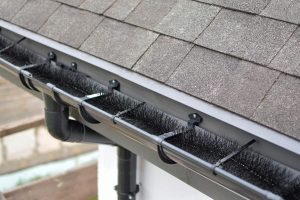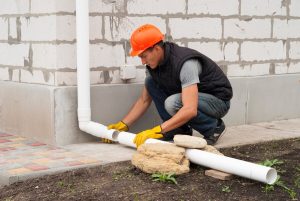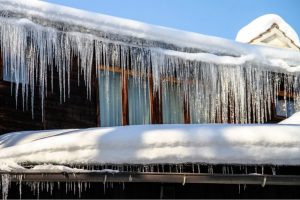What is a SBS Roofing System?
May 28, 2023

When it comes to commercial and industrial roofing, the industry is continually changing. Roofing materials are more diverse than ever, still, bituminous roofing membranes remain a popular choice. There is one among the market that has proven to be especially popular: SBS roofing systems.
In this article, we have outlined some general information about a roofing system commonly used in commercial and industrial roofing. Using the information provided, we hope to help you find out how an SBS roof can benefit your property. Here’s what you need to know about SBS roofing systems.
What is a SBS Roofing System?
SBS modified bitumen roofing systems are popular among commercial or industrial buildings with flat or low-sloped asphalt-based roofs. SBS, otherwise known as styrene-butadiene-styrene, refers to the type of polymers added to asphalt. SBS is a long-lasting membrane when blended with bitumen. Its rubber composition makes the material less prone to cracking and can withstand even the harshest of elements such as ice and sun.
SBS modified bitumen is flexible enough to move with the building. Even after being stretched and scraped, SBS roofing membrane retains its shape.
SBS Installation
SBS is one of the most customizable types of roofing membranes. SBS can be installed through a variety of application methods including cold-applied, heat-welded, self-adhered, mechanically fastened, or hot application methods. Although the best installation method depends on a roof’s size and shape, the heat-welded option is the most common. As well, the installation process includes multiple reinforcement types used with the asphalt, such as fiberglass, polyester mats and scrims, etc.
SBS is even one of the simplest commercial roofing membranes to install. Despite how intimidating the installation process may look, SBS is both easier to install and less messy than other roofing options, like self-adhered.
SBS Roofing Benefits
Take the best attributes of a built-up roofing system and combine that with the qualities of a single-ply roof and you’ll get an SBS modified bitumen roof! Due to their numerous benefits, SBS roofing membranes have become a popular choice within the market. This article focuses on the five key benefits SBS bitumen roofing membranes have to offer.
- Compatibility
SBS roofing membrane is highly compatible with all types of flat roofing applications.
- Resistance to the Elements
With an SBS roofing membrane, the building owner can be confident in the reliability of the roof as SBS can withstand harsh weather conditions such as high and low temperatures, rain, snow and sleet, and ice.
- Longevity
A key advantage of SBS roofing membranes is its exceptional lifespan. SBS on its own can last for 30 years or longer. Not to mention, an SBS roofing system can also further extend the longevity of a bituminous flat roof when it’s nearing the end of its service life. A single layer can be installed over top of the existing system, extending its lifespan.
- Water Resistance
By using an SBS bitumen blend, your roof will be even more resilient to leaks and water damage. For roofs that hold water for long periods after it rains, SBS is an excellent material to utilize.
- Installation
As mentioned, SBS installations are quite customizable with a variety of application methods to choose from. They can be applied using cold, heat-welded, self-adhered, mechanically fastened, or hot application methods. Not to mention, the simplicity of their installation is a huge advantage.
An SBS roofing system can be a great choice for commercial or industrial low-slope buildings. It is both a popular choice among building owners and one of the best options available on the market.
Should SBS roofing systems interest you, contact our experts at D’Angelo and Sons Roofing and Exteriors for further assistance. We look forward to hearing from you!





